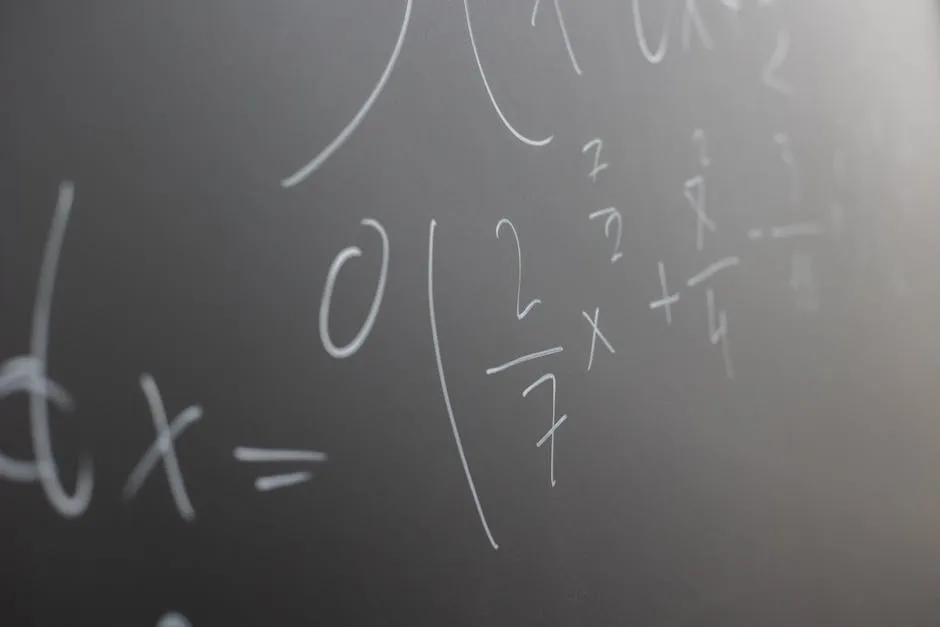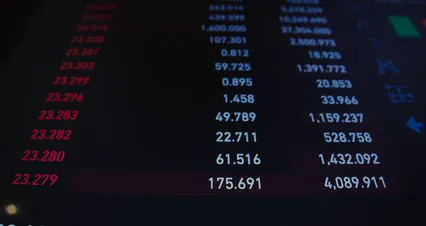Introduction
Are you a student at the University of Illinois Urbana-Champaign (UIUC) wondering how to spice up your academic portfolio? Look no further! A Statistics minor could be the perfect addition to your studies. In today’s data-driven world, statistical skills are like the Swiss Army knife of the job market. They’re versatile, essential, and, let’s face it, pretty cool!
Statistics isn’t just about crunching numbers. It’s about making sense of data and drawing meaningful conclusions. Whether you’re majoring in Psychology, Economics, or Engineering, a Statistics minor enhances your understanding and application of quantitative reasoning. It equips you with the skills to analyze trends, conduct experiments, and make informed decisions. Plus, who wouldn’t want to impress their friends with the ability to interpret data like a pro?
At UIUC, the Statistics minor is well-structured and accessible. The program offers a range of courses that cater to different interests and backgrounds. You’ll dive into subjects like statistical concepts, data analysis, and advanced statistical methods, all while enjoying the vibrant campus life. And let’s not forget the networking opportunities! Alumni from this program often land impressive jobs, making this minor not just a feather in your cap, but a gateway to a successful career.
Did you know that graduates with a Statistics minor report higher job placement rates? According to recent surveys, employers value candidates with strong analytical skills. With this minor, you’ll not only stand out in job applications but also be prepared for a wide range of positions in various industries. So, if you’re ready to boost your career prospects while having a little fun along the way, let’s take a closer look at what the Statistics minor at UIUC has to offer!

Understanding the Statistics Minor at UIUC
What is a Statistics Minor?
The Statistics minor at UIUC is designed to give students a robust understanding of statistical inference and applied statistical analysis. It requires completion of at least 17-22 credit hours, ensuring you get a solid foundation in this crucial field. But wait, what exactly does “statistical inference” mean? It’s all about drawing conclusions from data samples. You’ll learn how to make predictions and decisions based on the data at hand. For a deeper dive into statistical inference, you can check out this comprehensive guide on statistical inference for estimation in data science.
Understanding statistical inference is crucial for making data-driven decisions. Learn more about it here.
This minor is incredibly relevant for students across various disciplines. It complements majors like Business, Psychology, and even Computer Science. Imagine being a Marketing major who can back up their strategies with solid statistical analysis. Or a Psychology major proficient in interpreting survey results! The opportunities are limitless.
Many students choose to add a Statistics minor to stand out in the competitive job market. As industries increasingly rely on data-driven decisions, your ability to analyze and interpret data will make you a hot commodity. It’s like having a secret weapon in your academic arsenal. So, whether you’re looking to enhance your current skill set or open doors to entirely new career paths, the Statistics minor is a smart choice.

To make the most out of your studies, having the right tools is essential. Consider investing in a TI-84 Plus CE Graphing Calculator. This handy device is perfect for visualizing complex data and performing statistical analyses with ease. Say goodbye to manual calculations and hello to efficiency!
Program Objectives
The primary goal of the Statistics minor is to develop your statistical reasoning and analytical skills. You’ll learn to approach complex problems with a data-driven mindset. The program focuses on critical thinking, allowing you to assess statistical claims and evaluate research findings effectively.
As industries continue to evolve, the demand for individuals with statistical knowledge skyrockets. Employers are seeking graduates who can analyze data, identify trends, and make informed decisions. By pursuing a Statistics minor, you’re not just gaining knowledge; you’re positioning yourself as a valuable asset in any organization. The ability to interpret data accurately is increasingly vital in sectors like healthcare, finance, technology, and marketing.
In conclusion, the Statistics minor at UIUC is more than just a set of courses. It’s an opportunity to enhance your education, improve your employability, and develop crucial skills that will serve you well in any career path. Embrace the power of statistics and watch your professional possibilities expand!

Admission and Prerequisites
Admission Requirements
Are you ready to declare a Statistics minor at UIUC? Great choice! To kick off this exciting journey, you need to contact the undergraduate advisor. This is your go-to person for all things related to the minor. They’ll guide you through the process and provide you with essential information.
The admission process is straightforward. Simply reach out to the advisor, who will help you understand the requirements and steps involved. Make sure to ask any questions you may have. You are not alone in this—there’s a whole support system ready to help you navigate this pathway.
Now, let’s talk eligibility. Generally, students should maintain a good academic standing. This usually means a minimum GPA of 2.0. However, check with the advisor for specific criteria that might apply. They’ll ensure you meet any course prerequisites before officially declaring your minor.

Required Prerequisites
Before diving into the Statistics minor, there are a few mathematical prerequisites to tackle. First up: calculus! You’ll need to take calculus through at least MATH 231. This course lays the groundwork for understanding statistical concepts and methods. You wouldn’t want to jump into statistics without a solid math foundation, right?
Aside from calculus, some students may benefit from additional math courses. These can include algebra and introductory statistics. Not only do these courses enhance your mathematical skills, but they also prepare you for success in the minor. A strong grasp of math ensures you’ll handle the statistical analysis like a champ.
Why are these prerequisites crucial? They’re not just a formality! These courses equip you with the analytical skills necessary for understanding data. You’ll find that statistics isn’t just about crunching numbers. It’s about interpreting data and making informed decisions based on that analysis. So, embrace those math classes! They’re your stepping stones to becoming a statistics whiz.

Course Structure and Curriculum
Overview of Required Courses
Ready to get down to the nitty-gritty of the course structure? Completing the Statistics minor requires a total of 17-22 credit hours. This isn’t just busywork; it’s an investment in your future. These credit hours are divided into several categories, ensuring a well-rounded education in statistics.
Statistics Concepts (3-4 hours)
First, you’ll need to select one course from the Statistics Concepts category. Here are your options:
- STAT 100: Statistics – A foundational course in statistical principles.
- STAT 107: Data Science Discovery – Introduces data science techniques and concepts.
- ACE 261: Applied Statistical Methods – Focuses on practical applications of statistics.
- CPSC 241: Intro to Applied Statistics – Combines statistics with computer applications.
- ECON 202: Economic Statistics I – Applies statistics to economic data analysis.
- EPSY 280: Elements of Statistics – Offers a basic overview of statistical methods.
- PSYC 235: Intro to Statistics – Focuses on statistics in the field of psychology.
- SOC 280: Intro to Social Statistics – Covers statistical methods in sociology.
These courses will arm you with the necessary statistical concepts and prepare you for more advanced topics. And if you want to dive deeper into statistical analysis, consider grabbing a copy of Statistics for Dummies. This book simplifies complex concepts, making it a great companion for your coursework!

Data Analysis (3 hours)
Next up, the Data Analysis category requires you to pick one course. Your options include:
- STAT 200: Statistical Analysis – A deeper dive into statistical techniques for data.
- STAT 207: Data Science Exploration – Explores data science principles and practices.
- STAT 212: Biostatistics – Focuses on applications of statistics in the health sciences.
These courses provide vital skills in analyzing data, which is essential in today’s data-centric landscape. For tips on effective data analysis, check out this guide on effective data analysis in economics and statistics.
Learning data analysis techniques is crucial for navigating today’s data-driven world. Discover effective data analysis strategies here.
Linear Algebra (2-3 hours)
You’ll also need to complete a Linear Algebra course. Here’s what you can choose from:
- MATH 225: Introductory Matrix Theory – An introduction to matrix theory concepts.
- MATH 257: Linear Algebra with Computational Applications – Blends theory with practical applications.
- MATH 415: Applied Linear Algebra – Focuses on real-world applications of linear algebra.
Understanding linear algebra is crucial for many statistical methods, so this course is a must. And if you’re looking for a solid reference, The Data Warehouse Toolkit: The Definitive Guide to Dimensional Modeling is a fantastic resource that connects these concepts to data management!

Mathematical Statistics (3-4 hours)
For the Mathematical Statistics category, select one of the following:
- STAT 400: Statistics & Probability I – A rigorous introduction to probability and statistics.
- ASRM 401/STAT 408: Actuarial Statistics I – Focuses on statistics in the actuarial field.
- MATH 461: Probability Theory – Covers foundational probability theory concepts.
These courses will enhance your understanding of the theoretical underpinnings of statistics. To further bolster your knowledge, consider reading An Introduction to Statistical Learning. It provides an excellent overview of statistical learning techniques!

Advanced Statistical Methods (6 hours)
Finally, to complete your minor, you’ll select two courses from the Advanced Statistical Methods category. Options include:
- STAT 385: Statistics Programming Methods – Focus on statistical programming techniques.
- STAT 410: Statistics and Probability II – Builds on concepts from earlier courses.
- STAT 420: Methods of Applied Statistics – Focuses on applied statistical techniques.
- STAT 425: Statistical Modeling I – Introduces statistical modeling concepts.
- STAT 480: Big Data Analytics – Explores analytics focused on large datasets.
You’ll have the flexibility to choose courses that reflect your interests and career goals. Each course builds on the knowledge gained in previous classes, ensuring you’re well-prepared for real-world applications of statistics. And as you embark on this journey, a good USB Flash Drive for Data Storage will be your best friend in keeping all your project files organized!
With this comprehensive structure, the Statistics minor at UIUC is designed to equip you with valuable skills and knowledge. Whether you’re aiming for graduate studies or entering the job market, this minor is a significant asset. So, gear up and get ready to crunch some numbers!

Flexibility
The Statistics minor provides options for course substitutions. You can select electives from related departments, such as Computer Science or Economics. This flexibility allows you to tailor your education to your interests and career goals, ensuring a personalized learning experience. Always consult with your academic advisor to explore the best paths for your minor.

Career Opportunities
Enhanced Employability
A Statistics minor at UIUC can supercharge your job prospects. In a world saturated with data, employers are on the lookout for candidates who can decode numbers and trends. Adding a Statistics minor showcases your analytical skills, making you more attractive in various fields.
Imagine stepping into a job interview with a minor that screams “data-savvy!” Whether you’re aiming for a role in finance, marketing, or healthcare, the ability to interpret data can set you apart from the competition. In fact, surveys show that graduates with statistical expertise often enjoy higher starting salaries. So, if you’re looking to increase your employability, this minor is a smart investment.

Alumni Success Stories
Don’t just take our word for it—let’s hear from the alumni! Many UIUC graduates have reaped the benefits of their Statistics minor. For instance, Sarah, a former Psychology major, found herself landing a data analyst role at a renowned tech company. She credits her minor for equipping her with the skills to analyze user behavior and derive actionable insights.
Then there’s Michael, who majored in Economics. He says his Statistics minor made him a hot commodity in the job market. “Employers were impressed with my ability to handle complex datasets,” he shared. These success stories highlight how a Statistics minor can pave the way for exciting career paths.

Student Experiences and Insights
Testimonials
Current students rave about their experiences too! One student shared, “I never thought stats could be fun, but my classes were engaging and practical.” Many report that courses like STAT 200 and STAT 207 helped them gain hands-on experience with statistical software. Another student chimed in, “The professors genuinely care and encourage us to apply what we learn.”
Students often mention that the minor isn’t just about theory. They appreciate the real-world applications, which make the material relatable. “I loved applying statistical concepts to real data,” one student noted on a forum. This sentiment resonates with many, who feel empowered by the practical skills they gain.

Course Feedback
When it comes to course difficulty, opinions vary. Some students find the content challenging but manageable. “It pushed me to think critically,” said a sophomore. Others relished the challenge, finding it rewarding to grasp complex topics. On the flip side, students also mention the enjoyment factor. “Data analysis felt like solving a mystery,” one student quipped.
The applicability of the courses stands out as a recurring theme. Many students believe that the skills they acquire will be invaluable in their careers, regardless of their major. The minor helps them become adept at interpreting data, a skill that’s increasingly sought after in today’s job market.

Networking Opportunities
Statistics Ambassadors and Student Groups
Statistics Ambassadors play a vital role in enhancing the educational experience at UIUC. These student leaders organize events, workshops, and study sessions, creating a supportive environment for those pursuing the minor. Joining a student group can lead to friendships and networking opportunities that extend beyond campus.
Students often share that being part of these organizations helps them collaborate on projects and develop leadership skills. “I met some of my best friends through the Statistics club,” said one enthusiastic member. The sense of community fosters not only academic growth but also personal connections that can last a lifetime.

Career Services
UIUC offers robust career services specifically for Statistics minors. These resources include resume-building workshops, internship fairs, and job placement assistance. Students benefit from personalized guidance tailored to their career aspirations. “The career services team helped me land my first internship,” shared a recent graduate.
Moreover, the department frequently hosts networking events with industry professionals. These gatherings provide students with valuable insights and connections that can lead to internships or job offers. Investing in a Statistics minor not only equips you with skills but also connects you with opportunities that can shape your future.
Conclusion
Pursuing a Statistics minor at UIUC offers a treasure trove of benefits. First and foremost, it sharpens your analytical skills. In a world overflowing with data, this minor transforms you into a data interpreter extraordinaire. Employers crave candidates who can make sense of numbers and trends. With a Statistics minor, you become that candidate.
Moreover, this minor complements various majors. Whether you’re a psychology enthusiast or a business aficionado, statistical knowledge enhances your understanding. Imagine applying statistical analysis to market research or experimental design! The versatility of a Statistics minor is undeniable.
Another perk? Networking opportunities! UIUC’s Statistics department boasts a vibrant community. Engaging with peers and faculty opens doors to internships and job placements. You’re not just learning; you’re connecting with industry professionals who can guide your career.
So, if you’re contemplating whether to add this minor, consider the long-term benefits. It’s not just about fulfilling a requirement; it’s about enhancing your education and career prospects. Embrace the challenge, and you’ll find that statistics is not only useful but also incredibly rewarding.
To those curious about the next steps, reach out to your undergraduate advisor. They’ll provide insights on course selections and help you navigate the admission process. Take the plunge and explore the course options available. You never know; a Statistics minor may be the secret ingredient to your future success!
FAQs
What if I’m not a math major? Can I still pursue a Statistics minor?
Absolutely! The Statistics minor is designed for students from diverse backgrounds. Whether you’re in humanities, sciences, or business, statistical skills are beneficial. Many non-math majors find the courses approachable and rewarding. Statistics helps you interpret data in your field, making you more competitive in the job market.
Are there internship opportunities for Statistics minors?
Yes, there are plenty of internship opportunities! UIUC offers various resources to help students land internships. The career services office can assist with job fairs and networking events. Additionally, the Statistics department often shares internship postings relevant to the minor. So, keep your eyes peeled for those golden opportunities!
How does a Statistics minor enhance my major?
A Statistics minor enhances your major by providing essential analytical skills. For instance, if you’re studying marketing, understanding consumer behavior through data analysis can be a game changer. Statistically savvy graduates can assess market trends and make data-driven decisions. This minor equips you to tackle real-world challenges in your field.
What resources are available for tutoring or additional help?
UIUC offers excellent tutoring resources through the Statistics department. Students can access tutoring services designed to reinforce understanding of course material. Additionally, study groups and workshops are often organized, providing further support. Don’t hesitate to reach out for help when you need it!
Can I complete the minor online?
Yes, some courses for the Statistics minor may be offered online or in a hybrid format. This flexibility allows you to balance coursework with other commitments. Be sure to check the course catalog for online offerings and consult your advisor on suitable options. Embrace the chance to learn at your own pace while acquiring valuable skills!
Please let us know what you think about our content by leaving a comment down below!
Thank you for reading till here 🙂
All images from Pexels




